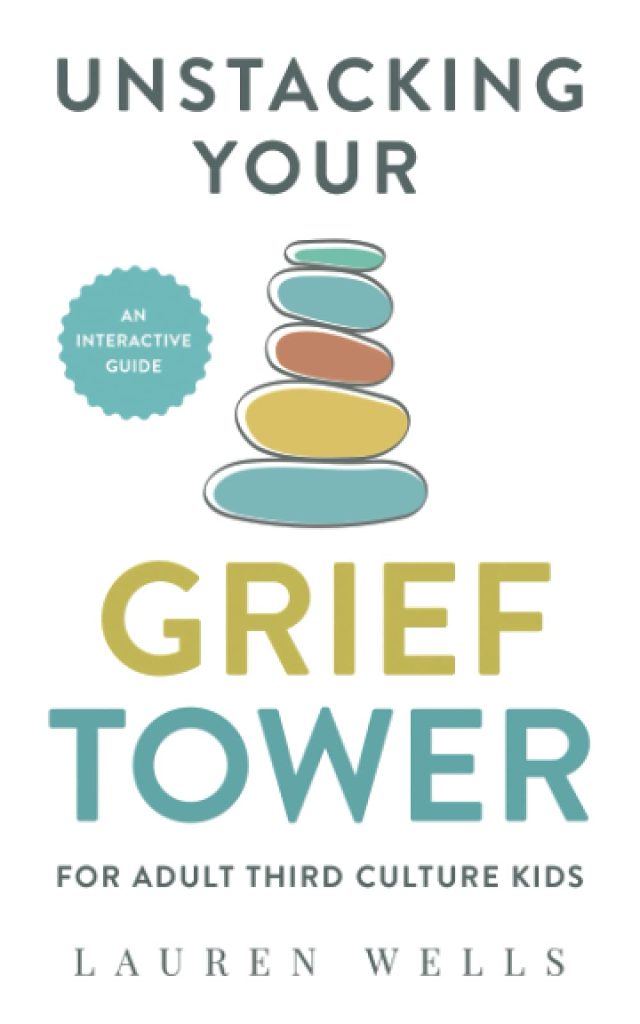Third Culture Kids in the Church: Finding Where You Belong

by Michael Pollock
When returning to our passport country as Third Culture Kids (TCKs) or passing through another country getting educated, many of us feel that we don’t fit into the culture. Unfortunately, we can also feel like we don’t fit into churches, as well.

This can be especially disorienting if church is one of the places we are expected to “belong.” You know the one—the one filled with all the people who knew you when you were little. Or perhaps the one you visited as you began college, thinking that since you were a visitor, you would be made to feel welcome, but you weren’t. Maybe it was when you returned from overseas and thought you would “slip back in” to a familiar group of Christians, but you didn’t.
What do you do? Does it matter? My answer to the second question is a resounding, YES! It matters a great deal. As to the first, let’s look at the big picture.
A Firm Foundation: Christ
As a follower of Christ, you belong to the Body of Christ, the universal Church. This group of people, currently estimated at 2.18 billion according to a Pew Research study in 2011, is incredibly diverse and growing. These are your people, or at least, you will find your people among them.
My simple encouragement is to choose to belong to a local group of those believers, even when they are not as diverse or aware of the Global Church as you may be. Claim your heritage as a child of the Father, seek out those who also lift up Jesus Christ—those who honor the scriptures and actually try to live out what it says.
I suddenly have the queasy feeling that after spending our first year and a half back in the U.S. after being in China that I might write something like…”There are so many varieties of practice and form that one is bound to find a church that suits your tastes.” No. Please, God, don’t let me become a consumer of the church experience!
A Firm Foundation: Community
In fact, I believe in my soul that the essence of the church is the relationships that encourage each person to fidelity in life and practice to the love that holds the universe together, embodied for us in Immanuel, God with us, Yeshua of Nazareth, our Saving One. If you think I’ve gotten that first title wrong, check out 1 John 4:8 and 16 and Colossians 1:17. Figuring out what it means to be a responsive disciple of Christ in our current context is what life and practice is all about. We were made to do this with one another.
So it matters what kind of community we choose. Not every church is equally faithful to Christ the Living Word and to the scriptures that we have been given. Therefore, discernment is important, and that takes more than just a cursory drop-in to see if I like the dress code (Jeans or not jeans?), the welcome (Did I just get free coffee or did someone actually greet me and ask about me?), the worship style (Do I like drums behind plexi-glass or an organ? Did I feel like I could enter in? Was there depth as well as emotion? Did I feel that I was worshipping in the Presence of God with other believers?), and the preaching and teaching (Was it scriptural? Relevant? Challenging? Actionable?)
It takes time and courage to meet people, to find out what makes that group of Christians tick, to know where their heart is as a congregation, and to know if that body has what I need and needs what I have. (Yes, it is ok to enter in with your needs as well as what you have to give!)
It is in community that our character is tested and honed (although I also agree that character is what a person chooses when no one else is looking). What I mean is that key elements of character (patience, faithfulness, kindness, honesty, and the like) cannot be tested in a vacuum. It takes participation in a community of others to find out if I can apply character beyond the bounds of my own solitary kingdom-of-self.
Among others, I am able to take initiative with my gifts in service and love towards other believers, which is, as Jesus taught in John 13:35, the key signifier that I am actually a disciple of his.
A Firm Foundation: Mission
Then there is the matter of reaching out to serve the greater community and to share the good news that Jesus brought. We are not intended to go out on our own to do that work. Funny how people often say we should not be lone rangers when even the famous Masked Man went everywhere with Tonto. Well, it is true that we can get way off course with a “just me and Jesus” mentality.
When Jesus sent out his disciples, he did so in pairs and then brought everyone back for debriefing and further teaching. We need a local group of believers who will not only keep us accountable, comfort and encourage us, and give us a place to share our gifts, but will also send us out both near and far, carrying the transforming power of Christ’s love into difficult and spiritually dark places. Belonging to that community of believers gives us a place to return, to share, to grieve, to learn, and to set out again refreshed.
Seeking the Right Community
After nine years overseas and far from our previous church home, my wife, daughter, and I are visiting churches, introducing ourselves, telling our story to people, asking questions, listening to the stories of others, comparing websites to practice, and inviting pastors over for dinner. We are exploring with caution and looking for resonance of the Spirit. I’m an MK, with scads of visitation experience, and honestly I have had to repent over judging the culture we observe. It is hard not to do so at times. Desiring to be biblical, we are inspecting the fruit of these various churches and looking for the connection to the vine (Matt. 7:15-17).
We have attended Mass, worshipped with a great community of Charismatic Episcopals, put on 3D glasses for a video illustration, gathered in a warehouse and praised God with ripped jean guitarists, and lifted our voices with an organ amidst stone and stained glass.
So what do we look for?
1. That God-in-Three-Persons is central in life and worship.
3. That the Bible is taught and the gospel is preached.
4. That seeking the Kingdom of God is evident.
5. That the community loves each other and that love spills over to the greater community and world.
Some days, I deeply dislike this process, but mostly I revel in the diversity of Christ’s body and the expressions of a life of worship together. It is going to take time to feel “at home” and I wonder if feeling alien is simply one of the places that I am comfortable as a TCK.
For you, it may take time and may not look like your parents’ idea of church, but jumping into the deep end is ultimately necessary and rewarding. The heritage of the Body of Christ is ours and is not something we should give up easily. You BELONG.
To paraphrase C.S. Lewis, once you have determined that specific groups of Christians really are “in the house” of belief in God through Christ, it is a loss to yourself to remain in the corridor of that house, shuffling your feet. Find an expression of the bride of Christ and pick a room! Enter in fully; you have much to gain and much to give. And lest you TCK readers think it is all up to you to make it work, it isn’t.
What Churches Can Do
The other side of the equation is the local church, the Body of Christ. This body, if it is functioning correctly, receives visitors—the poor, the curious, the church-shopper, the out-of-towners, the returning Missionary Kid (MK), and many others. A welcoming community of caring Christians makes it much easier for a person in transition.
Surely, we are in line with our mission to reach every creature with the gospel of Christ when we learn to minister to each person who walks through the doors. It does not matter who the visitor is when he or she enters our community and building. Scripture says that we may even entertain angels by welcoming all who come.
When it comes to MKs and other TCKs who walk through the doors, however, there are some points to keep in mind that can make the difference between a person who will just pass through and one who is cared for, nurtured, and grown, and who is able to share his or her gifts and talents in and through the church.
The following are some ways in which our churches can increase the probability that a global nomad will find a home in a church community.
#1. Look for TCKs. Remember that there are lots of TCKs who are not children of missionaries. If they are studying, they may not be citizens of the host country. It is important to learn how they are different from international and exchange students.
For starters, this is not the first time they have left “home” and “home” for them is not necessarily the country on their passports. TCKs who are not residents in your passport country may speak the language like a native due to international schools they attended. Realize that many, like a young friend who grew up in a village in Southwest China but holds a U.S. passport, will be “hidden immigrants” looking and sounding like everyone else but often with deeper cultural differences.
Some MKs never leave their own borders, but grow up on Reservations, Reserves, or urban settings, and they experience similar issues of dislocation. Many times, the question, “Where are you from?” will be met with a pause and may have a surprising answer. Dig a little bit and stay curious. It helps to keep in mind that TCKs are often talented “chameleons“ who might never be suspected unless they reveal their past.
#2. Know your MKs. When a church sponsors or supports missionaries from its congregation, those people are going overseas (or to a national location) as an extension of the love and obedience of that home group, not in the place of that home group. That implies that the home group is involved in financial support, prayer, visiting, and other tangible encouragements while the family is away and in practical encouragement and support when that family returns.
Anything less is a lack of understanding of mission and the work and life of the body. (By the way, the same is true of the missionary family who has a responsibility to be aware of and supportive of the work going on in the home-body. The Great Commission is a communal task, not a specialist one.)
You can communicate regularly with families overseas and know when they will be in the area as a whole or as part of the family. Ask for updated photos so you will recognize the kids and prep someone in the church to meet and welcome them when they arrive. If and when you ask them to share, also ask them what they need, how you can help, and how to pray with and for them.
#3. Listen to your TCKs. Everyone has a story and TCKs are no different. One difference that TCKs often find is that people rarely want to hear or are able to listen to their stories because the stories are “alien” or because it sounds like the person is bragging with all of their “When I was in… [fill in exotic location]” tales. The thing is, those places are not exotic to them; they are just events that happened.
Like everyone, TCKs want to be known. Usually. Sometimes, however, those stories don’t come out for a long time because the person just wants to fit in. So do ask and also be patient. Your ability to mentor and connect is often enhanced if you have a cross-cultural background. Careful listening is also necessary in discerning needs.
#4. Meet typical and special TCK needs. We must recognize the humanity of the person above his or her particular experience. Often, what a person needs in community is because he or she is a person: physical needs, safety, belonging, relationships, significant work, and the chance to contribute and grow.
At the same time, a TCK may have needs that others do not have. Reverse culture shock is real and takes time to process with feelings of anger, denial, confusion, sadness, being overwhelmed, and exhausted. Practical needs may abound because of gaps in knowledge and experience. These can include filing taxes, getting a drivers’ license, opening a bank account, buying appropriate clothing for the climate, registering to vote, getting a job, and knowing how to be safe in the context. (A female student I know grew up in Afghanistan with a passport from Korea. In college in the U.S., she hitchhiked to go shopping until friends warned her not to do that. She thought because the U.S. was a “Christian nation” and she was in a Christian college town that she would be fine.)
There may also be needs stemming from losses, hurts, and wounds from a mobile and ministry-focused life that need care, comfort, and healing. Being prepared to refer these global nomads to specialists with TCK backgrounds and training can make a world of difference. Oftentimes, a TCK most needs a mentor in the community to help introduce him or her to the community and to listen and to help with practical needs.
#5. Recognize and build on potential. TCKs in the church carry varying degrees of global experience and insight, cross-cultural experience and skills, ability to work with and appreciate people from diverse backgrounds, spiritual insights from a life that was often rich in biblical instruction and practically applied faith, and maturity in overcoming obstacles and challenges.
The increasingly global culture and multi-culture of our communities means that we need those skills. I believe that “home-base“ church communities can and must foster a cross-mentoring mentality in which each party recognizes that it can benefit from the skills and experiences of the other, thereby enriching everyone.
I’m not suggesting a one-size-fits-all approach, but rather a personalized process of getting to know one another, discovering common ground as well as uniqueness, seeking God’s direction and calling, and finding a match in the ministering of the Body of Christ that brings affirmation of the gifts and blessing to those under ministry. This is what the Apostle Paul was talking about in Romans 12.
After returning from China, my family was living along the Chesapeake Bay and heard of a rural community that had recently seen a large new settling of Mexican families. We were told that the church didn’t know what to do next. I wondered how many local church bodies harbored TCKs with Mexican and/or Hispanic backgrounds who could become bridges between communities.
I see many similar opportunities across the U.S. and the globe. The world is on the move and people with cross-cultural skills and mobile childhoods are uniquely poised to serve and minister to uprooted people since they can empathize and anticipate the needs.
Christian community is a two-way street. In order to create a sense of belonging to one another, we must all receive and take hold of the grace, peace, and power of Christ that unites us into a worshipping, responsive, faith-filled, and faithful house of the Most High. We do that by keeping our eyes on Christ and by committing to love and serve each other just as Jesus has loved us.
Endnote
1. A TCK is an individual who, having spent a significant part of their developmental years in a culture other than the parents’ culture, develops a sense of relationship to all of the cultures, while not having full ownership in any. Elements from each culture are incorporated into the life experience, but the sense of belonging is in
relationship to others of similar experience.
….
Mike Pollock is a Pastor’s Kid (PK), a Missionary Kid (MK), a Third Culture Kid (TCK), and a former educator in China. He and his wife now live in Michigan where he founded and directs Daraja, a young-adult MK/TCK development initiative.
EMQ, Vol. 51, No. 2 pp. 152-160. Copyright © 2015 Billy Graham Center for Evangelism. All rights reserved. Not to be reproduced or copied in any form without written permission from EMQ editors.





